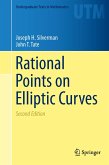The overall purpose of this monograph is to integrate and critically evaluate the existing literature in the area of optimal joint savings population programs. The existing diverse presentations are all seen to be discussions within a unified framework. The central problem is to compare the desirability of alternative inter-temporal sequences of total savings and population sizes. Of critical importance is whether one regards persons as the fundamental moral entities or whether one takes Sidgwick's viewpoint that something good being the result of one's action is the baSic reason for dOing anything. The latter viewpoint is consistent with defining a complete social preference ordering over these alternative sequences. Since part of one's interest is to evaluate the consequences of various ethical beliefs a com parative study of several such orderings is presented; in particular the Mill-Wolfe average utilitarian, and Sidgwick-Meade classical utilitarian) formulations. A possible problem with the social preference ordering approach is that the ordering may indicate the desirability of increasing the population size, if this increases the total amount of good, even though people may receive less than the welfare subsistence level of consumption. However, there are other ways of evaluating actions and, if persons are the fundamental moral entities, then perhaps these actions should be evaluated by their implications for the rights of individuals i. e. people Who are currently alive, people who one can predict will exist in the future (e. g.
Hinweis: Dieser Artikel kann nur an eine deutsche Lieferadresse ausgeliefert werden.
Hinweis: Dieser Artikel kann nur an eine deutsche Lieferadresse ausgeliefert werden.








